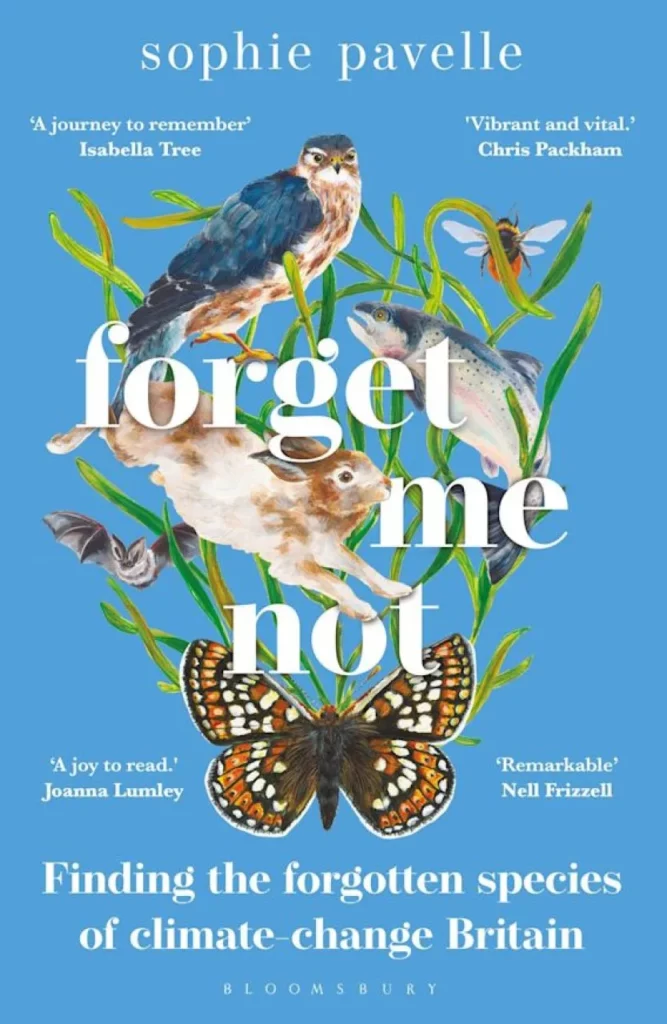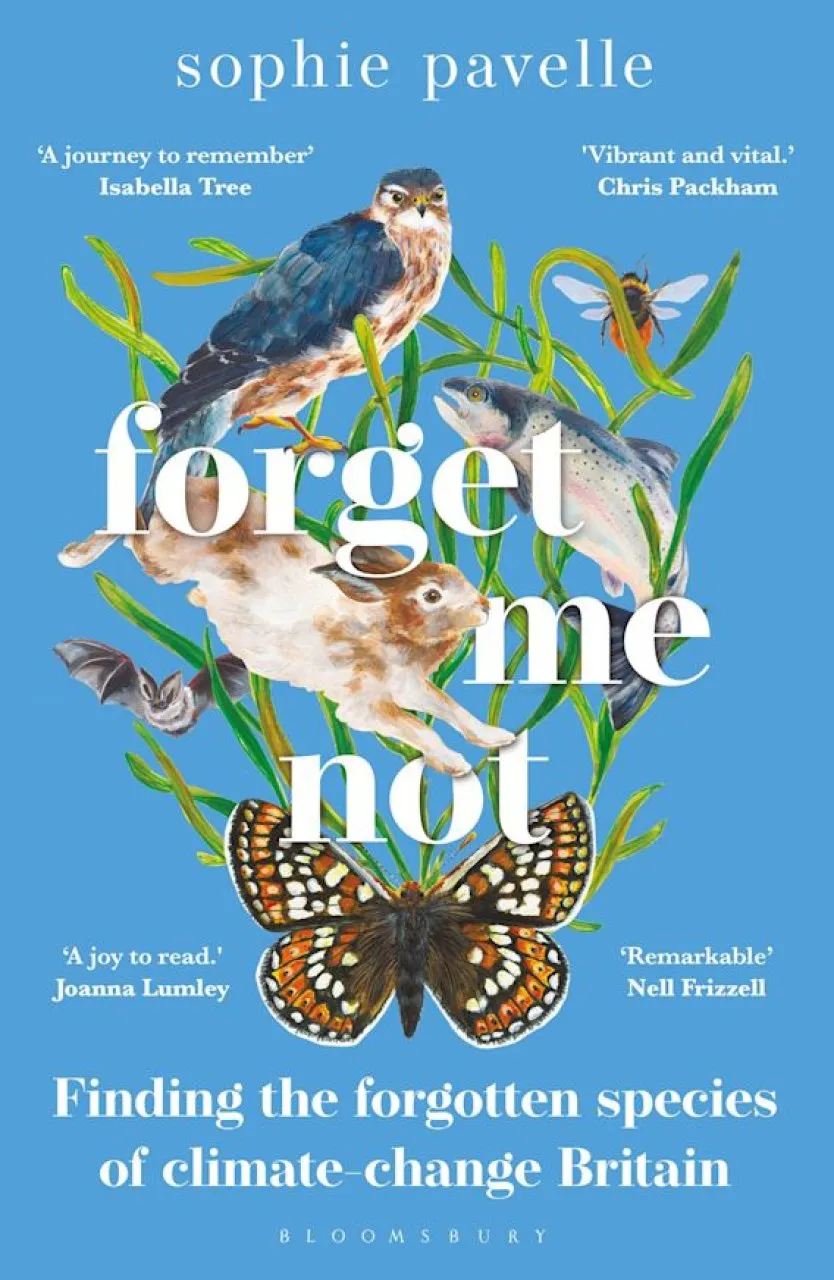When we think of UK species threatened by climate change, our minds probably conjure up the usual characters, like Puffins or Capercaillies. But there are many others affected as well. Ones that do not come so readily to mind. Luckily, Sophie Pavelle is flying the flag for these underdogs.
Forget Me Not focuses on UK species which are ‘not your average poster children’ for the climate crisis. Have you considered the importance of the Harbour Porpoise, or dwelled on the dung beetles’ plight, or listened to the Mountain Hare’s message? Each chapter focuses on one of these less familiar species; singing their praises and laying bare the problems they face at the hands of humans. And Pavelle is not just seeking them out in any old way, but by using low-carbon forms of travel. On foot, train, bike, electric car and kayak are just a few transport choices used to travel from Cornwall to Orkney and plenty of places in between. An impressive feat, which becomes even more impressive being done against the backdrop of the pandemic.
Pavelle pulls no punches, giving the facts as they are, but weaving them together with a poetic touch and some light-hearted relief. It felt counterintuitive to be chuckling out loud while reading a book about such a bleak topic, but that is the beauty of Forget Me Not.
The humour is balanced against the heartbreak, it is well thought-out, and well placed. Its lightness better highlighting the dark.
As well as her accessible writing style, Pavelle’s honesty throughout was refreshing. Typically, when we think of nature writing, we think of being led through the pages by an expert conquering a wild domain, but it is not the case here. Pavelle frequently confesses to not being a naturalist or an expert, and instead enlists the help of numerous scientists, conservationists and volunteers. Those working tirelessly to understand these species better, in order to save them, are as essential to the book as the species characters themselves, helping to add hope to the pages. For me, this honesty was one of the book’s biggest strengths; as a reader I felt that I was learning without being lectured. And it further cemented the idea that protecting nature is a team-effort. The planet will not be saved by one individual, but a collective working together and listening to what nature is telling us. Despite her self-deprecation, Pavelle definitely knows what she is talking about. And if getting people to listen is key to highlighting today’s conservation issues, then this woman, with her ability to communicate so passionately and knowledgeably, is unlocking all the doors.
Her honesty runs into her encounters as well. We all know that a good wildlife-watching trip rarely goes to plan and, spoiler alert, Pavelle’s are far from perfect. Whether it is a near capsize in a kayak, a missed encounter or a no show, the experiences are not glossed over, and the message is always the same: whatever happened it was great just to be out in the field.
What could have been a dark and depressing read manages to offer a flicker of hope. A reminder that we can still, as individuals, do our bit to ‘be a little messier in a tidy world’ and let wildness back in. Forget Me Not is a tribute to the underdogs and those working on the front lines protecting our planet. But it is also a call to take action: through nothing more radical than reconnecting. There is a huge amount of truth in that well-loved idea: we cannot save what we do not know.

